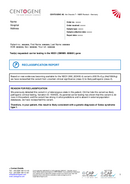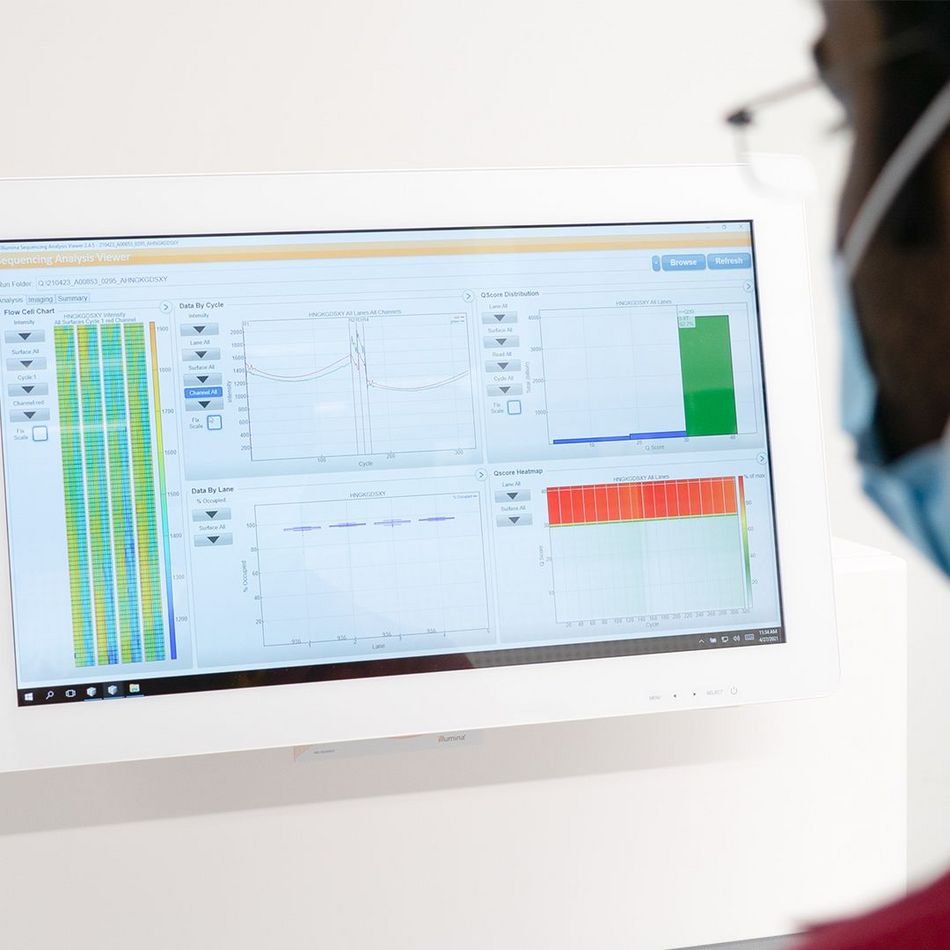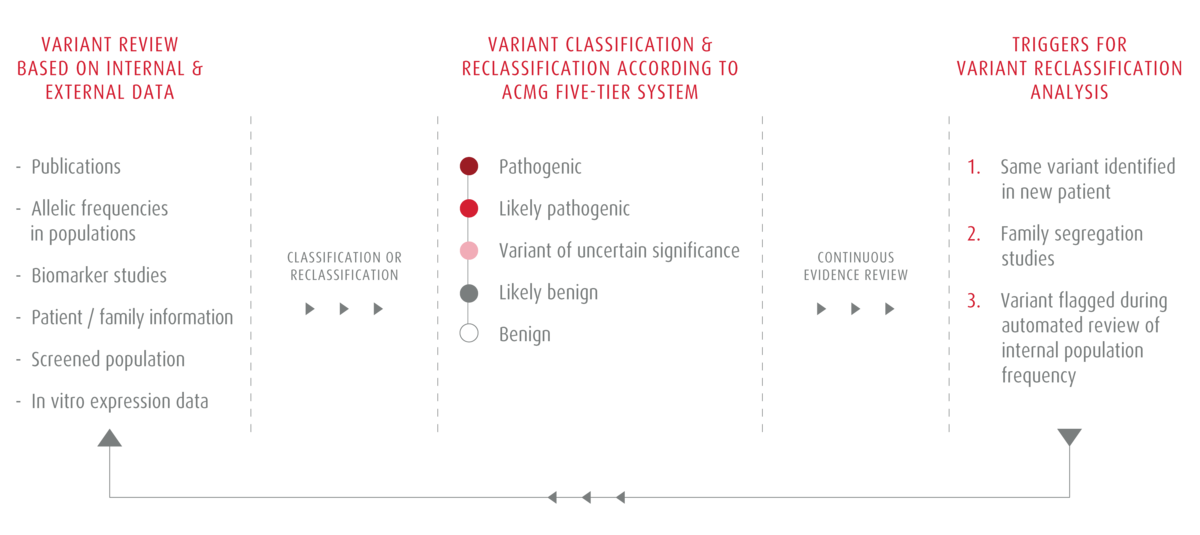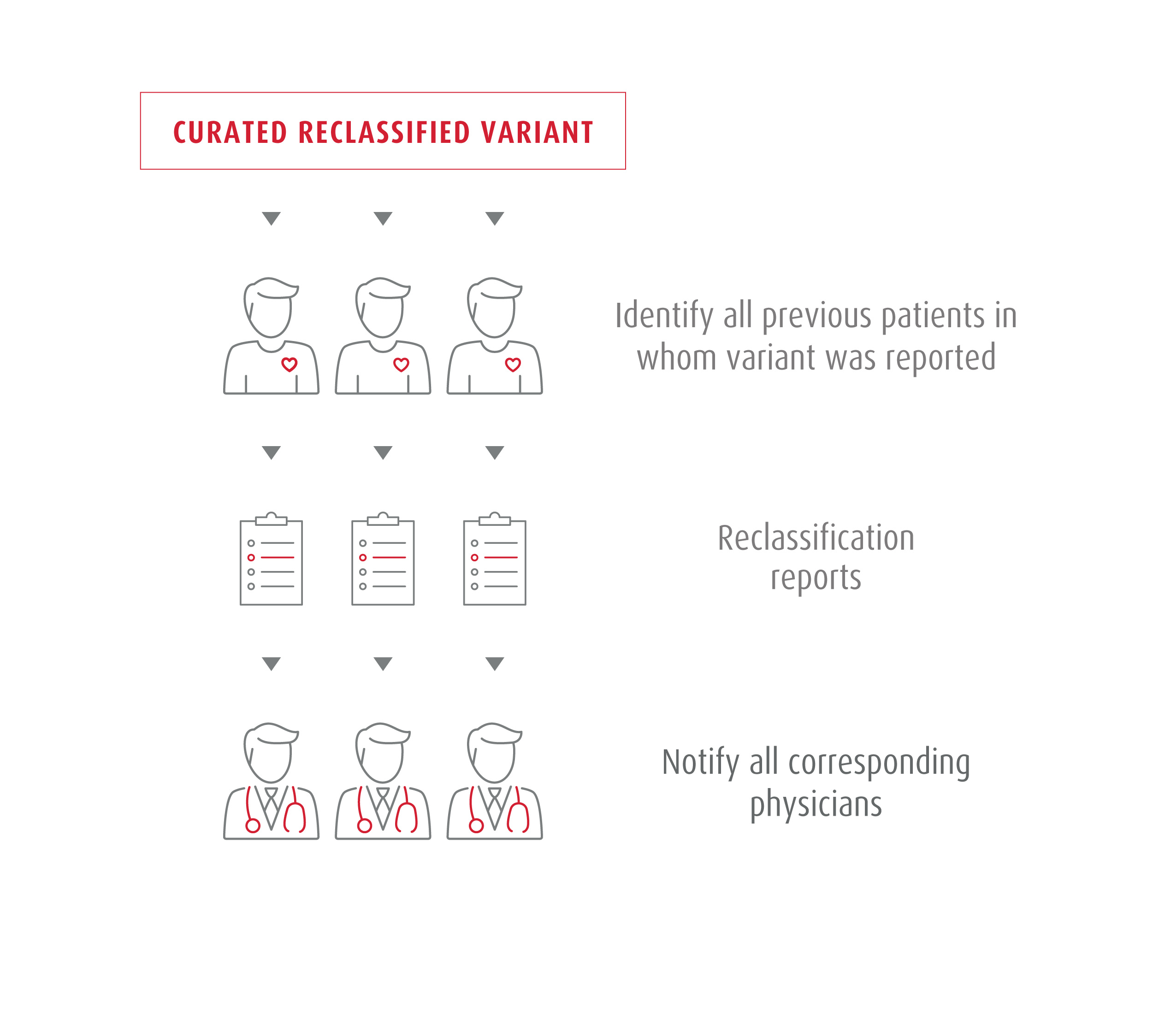Variant Reclassification
All diagnostic results from our tests are automatically entered into our variant reclassification program. This program supports the identification of new genetic evidence. We notify physicians automatically and free of charge if a new classification has an impact on a previous diagnosis.
Lifelong Commitment to Patient Safety Through Systematically Re-Evaluated Classifications
New disease-causing variants are identified every year. Consequently, classifying variants is an on ongoing process. At CENTOGENE, we have a dedicated team of experts who monitor medical literature and update our Bio/Databank accordingly. We use internationally recognized American College of Medical Genetics and Genomics (ACMG) guidelines to evaluate new evidence. We combine it with our patient data to make informed decisions when classifying newly identified genetic variants.
Once a variant is classified, every new observation, whether via internal or external research, is monitored and used to also re-evaluate past classification decisions systematically. New evidence can sometimes suggest a change in diagnosis or treatment. We communicate all re-classification decisions to our referring physicians, and any re-classification affecting a genetic diagnosis is shared as soon as possible.
Advantages of Our Variant Reclassification Program
- Proactive notification of every patient affected by the reclassification
- Based on a unique combination of broad patient data - genetic, biochemical, and clinical
- Variant data derived from a large and diverse cohort of patients
- Stringent data curation and validation process
Downloads & Resources

Reclassification Report
Carrier testing in the NSD1 (OMIM®: 606681) gene. Reclassified from uncertain clinical significance (class 3) to likely pathogenic (class 2).
Related Webinars
MOx – Advancing Rare Disease Patient Care With Multiomic Solutions
Watch the on-demand webinar now to gain insights into our multiomics revolution – a multidimensional approach looking at each patient from different angles to combine deep knowledge and insights for […]
Rewrite the Future of Rare Diseases With Multiomics
Our speakers, Maximilian Schmid M.D., Chief Commercial Officer – Diagnostics, and Prof. Peter Bauer M.D., Chief Genomic Officer, will highlight the power of multiomics in establishing a complete […]
NEW CentoXome® – Turning Our Expertise Into Your Advantage
Dr. Aida Bertoli-Avella and Dr. Jorge Pinto-Pasto provide you with an exclusive look into our enhanced Whole Exome Sequencing (WES) solution – NEW CentoXome.
Get in Touch With Our Customer Support
Our consultation service is available in several languages.
+49 (0) 381 80 113 - 416
Mon. – Fri. 7 a.m. – 6:30 p.m. CET
Sat. 8 a.m. – 12 p.m. CET



